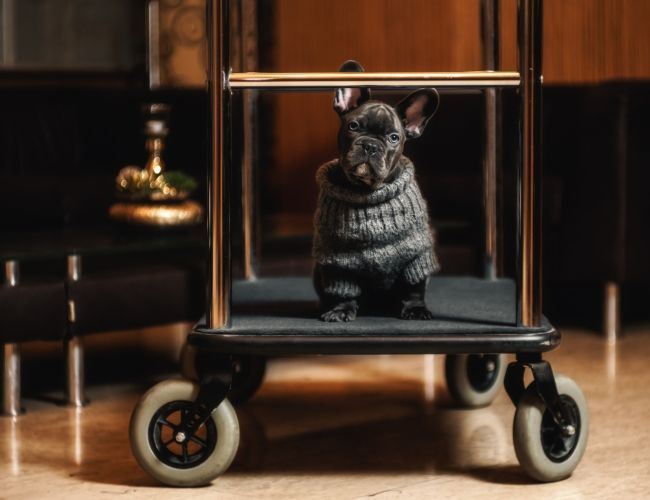Hotel Industry Trends 2022
These are some of the top trends expected for 2022:
The events of the last two years changed us. They’ve changed how we do business, changed how we travel, and they’ve shifted people’s priorities.
The pandemic affected the hospitality and travel businesses more than most and compelled the entire industry to innovate and adapt to persevere the fluctuation in demand and travel restrictions.
Hoteliers needed to assess almost every aspect of their business from touchless technologies, safety, sanitation, asset management, budgeting, health and well-being, functional spaces, staffing, marketing, and patrons with pets.
Although the word ‘trend’ suggests a passing thing, many of these changes are here to stay.
Digitized Experiences
Hotels must maximize their marketing with video stories and virtual walk-thrus of their properties. Video content invites four times the engagement of a static post.
Hotels should continue to provide more control to the customer with contactless check-in, digitized room controls, and payments. Customer-facing services are changing to more technology-assisted options like digital concierges and apps that allow for more personal experiences.
Holistic Hospitality – Health and Wellness
Wellness tourism is hotter than a sauna. The wellness industry is experiencing a ‘post-pandemic’ boom with many travelers seeking self-care, stress relief, healing, emotional balance, and better sleep.
Especially for hospitality venues with spa facilities, there is a growing demand for diagnostic technologies, expert treatments, and diet and nutrition programs. Also popular are yoga retreats, culinary classes, survival courses, and nature adventures.
Work from Hotel and ‘Bleisure’ Travel
Working remotely is now commonplace for employees and contractors, and is forecast to be a permanent shift for many workers. Big tech companies like Twitter, Facebook, and Amazon announced that they will adopt a hybrid or flexible approach to working remotely. In 2021 alone, the percentage of workers around the world that permanently work remotely doubled.
The ‘work from hotel’ trend is growing as is ‘bleisure’ (combining business with leisure). Hotels need to adapt to this trend with multi-functional spaces, free high-speed WIFI, ample plug sockets, and great coffee.
Loyalty guests, especially, expect to be recognized and hope to have their preferences remembered. They respond to more personalized communications including informative emails with targeted content and tailored offers and promotions.
Most CRM platforms use data to create more one-to-one interactions and customer profiling so hotels can learn what their visitor wants and needs.
Sustainability
Travelers decreasingly seek lavish lobbies and ostentatious displays of wealth, and prefer to travel purposefully and sustainably, and seek businesses and brands who are ethically aligned with them.
Millennials are now more than half of the workforce and eco-friendly efforts rank high with this group of travelers. Simple options include replacing miniature toiletries with bulk dispensers, energy-saving practices like smart bulbs, reduced towel and linen services.
Also consider adding vegetarian, vegan, and locally-sourced options to hotel dining choices.
Solo Travel
Solo travel has also increased substantially in the age of mindfulness. Many travelers seem to embrace the freeing or meditative value of spending time alone. After some of the isolation of the past 2 years, they look for authentic, casual, local experiences and opportunities to interact with new people.
To make solo travelers feel comfortable lower barriers between hotel staff and guests, consider homier interior design choices, and attempt to create an open and informal atmosphere.
Hosted and scheduled activities and events at your property appeal to solo travelers. Consider pool parties, cocktail hours, quiz nights, film screenings, cooking classes, and performances to offer a connection to the local culture.
Pet-Friendly Accommodations

According to the ASPCA, approximately 23 million U.S. homes welcomed a pet since the beginning of the pandemic, which accounts for nearly 1 in 5 households.*
More people want to bring their pandemic pups and cats on their travels and seek accommodations that are pet-friendly, not just pet-tolerant.
Rover-savvy hotels are offering amenities like beds, bowls, treats, and toys. They have modified their grounds for pet walking and offer guides on pet-friendly parks and neighborhoods. Some even have pet food menu options.
Flexible, Multi-functional Spaces
Designs of physical spaces in the hospitality industry are changing too. Perhaps part of the Airbnb effect, hotels are creating more communal spaces for socializing, more homey comforts like small functional kitchens and office space.
Public areas are designed to decrease bottlenecks in foot traffic to minimize close contact, lobbies are designed with lightweight, moveable furniture for added flexibility.
There’s also a trend to design more indoor/outdoor flow in spaces as customers desire more sunlight, fresh air, and nature.
References:
https://hospitalityinsights.ehl.edu/hospitality-industry-trends
https://fivestarcontent.co/blog/hotel-trends-to-watch

